
CISCO CYBERSECURITY DIRECTOR


CISCO CYBERSECURITY DIRECTOR
PATRICK RAMSEYER, VICE PRESIDENT EMEA AT LINKSHADOW DISCUSSES THE IMPORTANCE OF INTELLIGENT NDR – AND HOW HIS COMPANY IS STEERING CISOS AWAY FROM THE TRADITIONAL SILOED APPROACH TO CYBERSECURITY.
GOOGLE

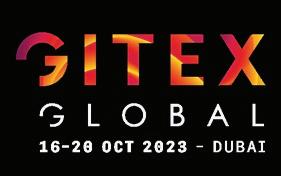
Talk to us:
E-mail: mark.forker@ cpimediagroup.com
Over the last number of years, the threat landscape in the cybersecurity ecosystem has escalated – and it shows no signs of slowing down.
Technology is evolving at breakneck speed, and whilst the advent of new technologies and innovations provide us with incredible new opportunities, it also comes attached with significant risks, such is the sophistication of cyberterrorists in the current climate.
Generative AI has sparked much fanfare and great excitement amongst the IT and technology industry, but again, like other technologies before it, the technology provides another ‘backdoor’ for cyber hackers to strike.
On the front cover of September’s interview of CNME is a fantastic interview with Patrick Ramseyer, Vice President EMEA at LinkShadow.
Ramseyer has enjoyed a distinguished career in cybersecurity, and he has been tasked with the responsibility of driving LinkShadow’s growth across EMEA.
In a candid and transparent exchange, he stressed the need for CISOs to move away from the traditional siloed approach to cybersecurity.
Ramseyer made the case for their Cyber Mesh platform as the vehicle for change, and also highlighted the capabilities of their Intelligent NDR solution.
The interview was a fascinating insight into the problems facing CISOs globally, and LinkShadow certainly have the product portfolio and range of solutions to help them fightback against the ever-evolving threats that are emerging from the shadows.
CNME were also in attendance at Next 23, which was hosted by Google Cloud in San Francisco.
We secured an exclusive interview with Abdul Rahman Al Thehaiban, Managing Director for the META region at Google Cloud.
He provided us with an overview on the impact of Google Cloud’s datacentre opening in Qatar earlier this year, its new partnership with Zain in Kuwait, and how the company is leveraging its knowledge and expertise to drive large-scale digital transformation projects across the region.
Thomas Kurian, CEO at Google Cloud declared that generative AI had paved the way for a new cloud era, and we have full coverage of his keynote address at Next 23 – and the new product announcements that were made.
CNME also conducted a terrific interview with Kevin Kline, Senior Staff Technical Marketing Manager at SolarWinds.

He brilliantly articulately some of the major database problems that IT professionals still face, the need for an effective cost management plan when migrating workloads – and the key fundamentals that are needed for data recovery.
We feature a story of resilience in our interview with Mohamed Saieed, CEO of Potensia Systems.
In a rollercoaster entrepreneurial journey, he was very open regarding some of the major setbacks he has faced in his lifetime, but he is enjoying phenomenal success with his new company.
Potensia Systems are harnessing the power of AI to help businesses transform their traditional functions and streamline their day-to-day operations.
We also have some fantastic thought leadership features from Dataiku, Veritas and Cisco.
Enjoy!
Mark Forker EditorIn a candid and transparent exchange, he stressed the need for CISOs to move away from the traditional siloed approach to cybersecurity.”


10 Abdul Rahman Al Thehaiban, Managing Director, META at Google Cloud, outlines how the company is driving digital transformation projects across the Middle East region.

14 Fissal Oubida, General Manager of Lexar Middle East, highlights the importance of best-in-class data storage solutions in the current and complex digital economy.
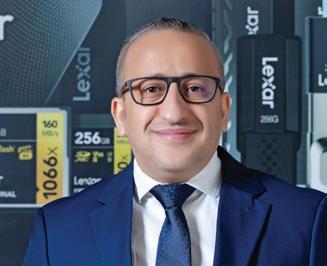


32 Kevin Kline, Senior Staff Technical Marketing Manager at SolarWinds, discusses overcoming database challenges and the importance of cost management when migrating workloads to the cloud.

CNME rounds up the biggest regional and global developments in enterprise technology, which includes the news that Gellify has appointed Enrique Ortega as their new CEO, Redington has accelerated their 'digital twin' experienceand Dataiku will reveal their AI innovations at GITEX 2023.
FOUNDER, CPI Dominic De Sousa (1959-2015)
44 Waleed Alawadi, Head of Digital Transformation Solutions at GCG Enterprise Solutions, details the unique capabilities of their G-Sign digital signature.
46 Dr. Thomas Pauer, President of Powertrain Solutions Division at Bosch, talks about the role hydrogen is going to play in the global energy ecosystem in the future.

ScienceLogic is excited to announce its strategic collaboration with CirrusLabs as a local office partner in the META region (Middle East, Turkey, and Africa).
This partnership underscores the commitment to delivering cutting-edge IT solutions to this vibrant market via a robust two-tier channel model. As part of its expansion efforts, ScienceLogic is actively seeking channel partners to join forces in the Middle East, Turkey, and Africa, with a primary focus on recruiting and enabling partners across META region. This initiative aims to cultivate strong partnerships that will equip channel partners to sell and support ScienceLogic’s AI Ops tools that enhances IT operations across the region.
Ryan Donley, Vice President of Global Sales at ScienceLogic, expressed, "Our collaboration with CirrusLabs as a local office to develop channel partner eco-system directly bolsters region’s AI knowledgeable channel partners who can advocate their customers to move from costly and complex infrastructure to modern AI based automation tools that simplify IT operations".
Hikvision launched a new generation of Smart Managed Switches that, in conjunction with the Hik-Partner Pro mobile app, enable installers to remotely deploy and configure security systems with comprehensive operation and maintenance capabilities. This new generation of Smart Managed Switches features a robust architecture with 6 KV surge protection for PoE ports. The full portfolio ranges from an economical 100 Mbps switches up to highpowered Gigabit switches tailored for SMB projects.
With this new generation of Smart Managed Switches, Hikvision integrates connectivity with management over the entire security

system through its mobile app, Hik-Partner Pro. Hik-Partner Pro weaves together cameras, alarms, NVRs, access control devices, and software, creating a unified and easy-to-use security system for centralised, visualised operations and maintenance.
GELLIFY Middle East, a prominent player in the innovation and digital transformation landscape, proudly unveils a transformative chapter with the appointment of Enrique Ortega as its new CEO.


On his appointment, Enrique Ortega said: "I am thrilled to lead the exceptional team at GELLIFY Middle East. We will continue the path that we initiated some time back and that differentiates us from others: being close to our clients, always
value-driven, with pragmatic and actionable advice, tailormade solutions and collaborative partnerships”.
Massimo Cannizzo, CoFounder and Chairman of GELLIFY Middle East, expressing unwavering faith in Enrique's leadership, he stated, "Having collaborated closely with Enrique for almost a decade now, I am confident in his vision and prowess to guide GELLIFY Middle East into the next level of growth. His great expertise, combined with a profound understanding of the region, its dynamics and the needs of corporates and governments, positions GELLIFY for even greater regional success".
GELLIFY appoints Enrique Ortega as CEO, ushering in a new era of innovation and growth
Bybit, one of the world’s most trusted crypto exchanges, is proud to announce the launch of TradeGPT, its AI-powered education tool. The new product was developed as part of the exchange’s mission to become the Crypto Ark of the world, offering free mentorship and financial education.

Now Bybit users can access real-time market analysis and answers to their questions in multiple languages. In this way, TradeGPT acts as a mentor
and guide to the exponential world of Web3. For example, it can offer market strategies in terms of percentage chance and also recommend the right products for the strategies being discussed.
“Our analysts and tech team created ToolsGPT to provide the financial education and mentorship that is sorely needed in our hyperfinancialised world”, said Vivien Fang, head of financial products at Bybit. “Essentially, we built the tool that we all wished we had when we began our careers in financial engineering and trading. We’re proud to offer this for free as part of our mission to become the world’s Crypto Ark”.
Redington, the leading technology integrator and innovation powerhouse, is accelerating the uptake of its groundbreaking B2B e-commerce platform.

Redington’s B2B e-commerce platform, often referred to as Redington's “digital twin”, delivers an unprecedented online journey for channel partners in the ever-evolving digital landscape. It is designed to empower partners with greater control
over their business by simplifying transactions and giving them the freedom to conduct business at their convenience.
Viswanath Pallasena, CEO, Redington Middle East and Africa, said, "At Redington, we're not just keeping up with the digital age, we're pioneering it. Our B2B e-commerce platform is not only a demonstration to our adaptability but also a reflection of our commitment to delivering cutting-edge solutions that redefine customer and partner experiences. We are observing a surge of momentum from our partner community and high receptiveness to getting onboarded to the e-commerce platform".
Dataiku will showcase at GITEX 2023 its platform for democratizing AI and empowering organisations to maximize AI's potential across diverse skill sets and roles in an era of surging AI adoption across the Middle East region.
Dataiku will exhibit at this year’s GITEX Global under the theme, “Maximizing Business Value with AI: Scaling Across the Organization”. A recent Dataiku study shows 98% of UAE organizations see AI as a major business enabler and are investing more heavily in data science platforms. The poll also showed that UAE enterprises were acting on this belief. Almost three quarters (74%) of respondents said their organization had either maintained or increased investment in AI in recent months. More than two thirds (68%) of UAE organizations are investing up to half their tech budget in AI.
“Dataiku is the Everyday AI company,” said Sid Bhatia, Regional VP and GM for the Middle East, Turkey, and Africa, at Dataiku. “By empowering data experts and domain experts to work together to build AI into their daily operations, we enable everyone to add value — to be extraordinary, and to power their company into the future as a competitive force. We will attend GITEX 2023 at a nexus point in the history of AI, when technologies such as large-language models have entered the public consciousness and are seeing accelerated adoption. Our goal at this year’s event is to put these developments in context and show attendees how they can leverage them to mature their AI mix.”

Tenable, the Exposure Management company, today announced the launch of ExposureAI, new generative AI capabilities and services across the Tenable One Exposure Management Platform.
Tenable has also introduced Tenable Exposure Graph, a scalable data lake, Powered by Snowflake, that fuels the ExposureAI engine. This unified data platform - representing more than 1 trillion unique exposures, IT assets and security findings (vulnerabilities, misconfigurations and identities) across IT, public cloud and OT environments - is the largest repository of contextual exposure data in the world and feeds all of Tenable’s Exposure Management products.
“For years, Tenable has used its market-leading vulnerability management data and applied AI techniques to help organisations prioritise vulnerabilities based on true risk to the business. AI is a part of our DNA”, said Glen Pendley, Chief Technology Officer, Tenable. “Now we’re using generative AI to put more power than ever in the hands of security teams to inform their exposure management programs and root out cyber risk wherever it exists”.

The cybersecurity world came alive at the stunning Taj Exotica Resort and Spa, The Palm, as industry leaders and decision makers gathered for the highly anticipated CISO 50 & FSA Awards Gala. Sponsored by Cloud Partner – SolarWinds, Gold Sponsors – Barracuda Networks, LinkShadow, MMA Infosec, Resecurity, StarLink and Silver Sponsor – CyberHub 24/7 CSOC Powered by Finesse, this prestigious event celebrated excellence and innovation in the field of cybersecurity and provided a unique platform for networking, knowledge sharing and recognising outstanding contributions to the industry.
The highlight of the evening was an insightful panel discussion titled "The Shifting Security Horizon: Challenges and Opportunities." Experts from various sectors of the cybersecurity industry engaged in a dynamic conversation, sharing their experiences and insights on the evolving landscape of cybersecurity, particularly in the area of security investments. The panel delved into the latest threats and trends, the role of artificial intelligence and machine learning in cybersecurity, and strategies for staying ahead of cyber adversaries.
The panellists included:
1. Amit Mehta, Cybersecurity Consulting Practice LeadEEMEA, Mastercard
2. Anoop Kumar Paudval, Information Security Manager, Al Nisr Publishing
3. Ashish Khanna, Global Head of Information Security, Sharaf Group

4. Mhd Wail Khachfa, Chief Information Security Officer and Business Continuity Manager, Digital Ajman
5. Rajesh Yadla, Director Head of Information Security, Al Hilal Bank
6. Waqas Haider, Chief Information Security Officer, HBL Microfinance Bank
Moderated by Anita Joseph, Editor Tahawultech.com and Security Advisor, the engaging discussion shed light on the challenges and opportunities faced by organizations today in the realm of cybersecurity. Attendees left the session with a deeper understanding of the ever-evolving threat landscape and actionable insights to bolster their security strategies.
Another highlight was the announcement of the winners of the CISO 50 & FSA Awards. These awards celebrated individuals and organisations that demonstrated exceptional innovation, leadership, and dedication towards strengthening the cybersecurity ecosystem.

Help AG, has partnered with AlgoSec, a global cybersecurity leader in securing application connectivity.
The partnership will enable Help AG customers to benefit from AlgoSec’s fast, secure application delivery and security policy management across public and private clouds, containers, and on-premises networks. The demands of digital transformation necessitate rapid application development, while concurrently facing increasingly sophisticated threats, highlighting the crucial importance of robust cybersecurity. Consequently, security teams are now confronted with a significant challenge - finding the optimal balance between speed and security.
Commenting on the partnership,
Stephan Berner, Chief ExecutiveOfficer at Help AG, said: “From the beginning, Help AG has prioritised application security, with a special focus on ensuring that security is built in from the development and operations stage. We are pleased to partner with AlgoSec, further bolstering our leadership in the field of DevSecOps by giving our customers
Ingram Micro Inc., a global leader in technology and supply chain services, recently announced a new distribution agreement with Zoho, a global technology company, to bring Zoho's suite of products to multiple countries across the MENA region.

The primary focus of this initiative will be on Zoho Workplace, an enterprise collaboration platform, and Zoho Bigin, a pipeline-centric CRM for small businesses. The countries covered under this agreement include Egypt, Qatar, Oman, Morocco, Lebanon, the United Arab Emirates, and Saudi Arabia. This move is expected to significantly enhance the availability and accessibility of Zoho products to businesses of all sizes across the region.
Dr. Ali Baghdadi, SVP & Chief Country Executive, MEA, Ingram Micro, commented on the new initiative: "The integration of services between Ingram Micro and Zoho is a testament
to our dedication to bringing the best technological solutions to our clientele across MENA. Zoho products can empower businesses to operate more efficiently and serve their customers better. We believe in the power and versatility of these tools, and we're excited to help usher in a new era of digital transformation in the region". This agreement shows the growing recognition of Zoho's value proposition in the MENA region. Businesses can
access to AlgoSec’s suite of services and solutions enabling secure connectivity across the entire application fabric”. About this strategic partnership, Mike Landwehr, Vice President – APAC at AlgoSec said “AlgoSec’s success has always been a combination of our market leading product and the strength of our partnerships. I am happy and proud to count Help AG, a cybersecurity partner in a league of its own, as one of our partners, and we look forward to working jointly to serve our customers in the region”.
now look forward to better access and support for Zoho's suite of products through Ingram Micro's expansive distribution network.
Hyther Nizam, President, Middle East and Africa at Zoho commented, "We are excited to become a trusted ally for Ingram Micro. This collaboration ensures that customers can easily access innovative, affordable and scalable software solutions that streamline their business processes and improve overall efficiency, especially as organisations increasingly shift towards cloud-based solutions. This alliance signifies a strategic move that will enhance Zoho's distribution network and further expand its presence in the MENA region. It also reinforces Zoho's commitment to serving local businesses, in line with its transnational localism strategy, wherein Zoho's expansion is locally rooted while staying globally connected".
CNME Editor Mark Forker spoke to Abdul Rahman Al Thehaiban, Managing Director, Middle East, Turkey & Africa at Google Cloud, during 'Next 23' in San Francisco, to learn more about their recent partnership agreement with Zain in Kuwait, how its suite of technologies is enabling governments across the Middle East to drive digital transformation - and how their new generative AI products will only serve to accelerate the growth of Google Cloud across the region.
Abdul Rahman Al Thehaiban is one of the most respected and revered thought leaders within the Tech industry in the Middle East, having enjoyed a stellar career to date, one that has spanned almost 30 years.
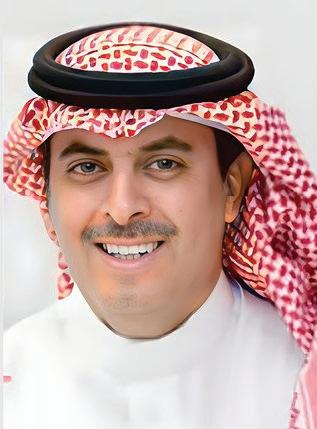
Al Thehaiban spent a quarter of century at Oracle, where he held a number of senior positions - before opting to join Google Cloud as their Managing Director in April 2021.
Under his tutelage Google Cloud has enjoyed huge growth over the last number of years, and have rubber stamped their position as the market incumbent when it comes to cloud providers.
In a candid conversation, Al Thehaiban pointed out that a combination of Google Cloud's strategic decision to invest significantly in the
region, coupled with the raft of economic transformation reforms being pursued by governments across the Middle East created the perfect storm.
"Over the last number of years, we have strategically invested quite heavily across the MEA region, most notably being the opening of our cloud region in Qatar back in May. We have also announced plans to establish a cloud region in
Saudi Arabia and South Africaand obviously we have big plans for Kuwait too. I think these investments perfectly illustrate our commitment to the region. However, there are so many more countries across the Middle East that are adopting really progressive and ambitious economic reforms, and at the core of all these visionary programs is digital transformation, and cloud is the underlying pillar in that transformation journey - and Google Cloud have established themselves as the partner of choice to drive this transformation," said Al Thehaiban.
Google Cloud works with some of the region's blue-chip companies, and they recently entered into a new agreement with telco operator Zain in Kuwait.
Their hybrid-cloud Anthos platform has garnered plenty of fanfare from industry experts, but as Thehaiban pointed out, Zain are also keen to capitalise on the company's AI solutions.
"Our collaboration with Zain is a really important one, as they are the flagship telecommunications provider in Kuwait. In relation to the collaboration, they have agreed to use our hybrid and multi-cloud Anthos platform to help them on their digital transformation journey. However, they also wanted to adopt other technologies provided by Google Cloud, such as our CCAI (Google Contact Centre Artificial Intelligence) which we successfully adopted previously with Zain KSA. We are very excited about this new
partnership, and we can clearly see how they want to utilise our portfolio of solutions and capabilities to completely transform their day-to-day operations," said Al Thehaiban.

Many industry commentators believe another 'ace' that Google Cloud have in their pack is the trust and security element they provide for their customers. The issue of data sovereignty is a thorny issue across the Middle East, but again the company is addressing these concerns by establishing cloud regions all over the GCC.
"Prior to the announcement
of our cloud region in Qatar, there was a huge demand within the country to address concerns many enterprise and government organisations had around the topic of data sovereignty. Since opening the cloud region, we have seen huge traction across Qatar, with a real appetite for our Anthos platform. However, the topic of data sovereignty is not just a concern in Qatar,
it's reflected across the region and that is why we have plans in place to open other cloud regions in Kuwait and Saudi Arabia. Companies trust the Google name, we're an ethical company - and our track record when it comes to security speaks for itself," said Al Thehaiban.
The need for talent and skills is quite important not only in the Middle East region but on a global scale. Hence, Google Cloud is taking the lead in the region with the establishment of centres of excellence in Qatar and Saudi Arabia.
"It's evident that we need to address the skills shortage across the region. We believe that the establishment of two centres of excellence in Saudi Arabia and Qatar, are the first steps needed to address the growing issue. In Africa, we have already commenced training programs around Google Cloud to accelerate the enablement of the skills required to manage the platform properly, and that will really help us achieve our overall vision and goal, which is to help our customers digitally transform their organizations. We want to elevate the skillset because it is our responsibility to equip our customers with access to the right tools and solutions needed to facilitate their transformation," said Al Thehaiban.
We want to elevate the skillset because it is our responsibility to equip our customers with access to the right tools and solutions needed to facilitate their transformation.”

Another key component in the strategy of Google Cloud across the region was the fostering of a strong partner ecosystem.

"A strong and thriving partner ecosystem is a key focus for us, and in order for us to elevate the skills across the region then we need to empower our local partners and System Integrators. We have onboarded a large number of Global System Integrators, who have been promoting and implementing our Google Cloud Platform across the United States, Europe and APAC, and we are now harnessing that knowledge in a bid to bring it into the Middle East region to support the local system integrators here," said Al Thehaiban.
The tech industry is one of the most energy intensive industries in the world, again, Google Cloud has shown tremendous leadership when it comes to sustainability, by helping businesses work more sustainably.
"Sustainability is so important to Google Cloud, and that's why we have fully pledged our commitment to become carbon neutral by 2030. We know that one of the key priorities for CEOs right across the board is sustainability - and sustainability has always been in the DNA of Google, and that is another attractive element for businesses when they are selecting their cloud provider. COP28 is in Dubai later this year, and we will be participating at the summit, where we will showcase the role we are playing in building
a more sustainable world for everyone," said Al Thehaiban.
When pressed on what the future holds for Google Cloud in the Middle East, Al Thehaiban is excited at the company's prospects.
He pointed to a study in the UAE that points to the tsunami of adoption when it comes to AI, and with the announcements just made by the company at 'Next 23' - Google Cloud is wellpositioned to amplify their market presence over the next few years.
"The future for Google cloud is exciting, there's no doubt
about that. We're seeing more and more traction around AI. There was a study conducted recently in the UAE indicating that 83% of UAE businesses are ready to use Generative AI to boost performance. With that traction and demand that is evident across the region, and with the announcements we have made around generative AI here at Next 23, will further solidify our standing amongst our customers and partners and will help us accelerate growth. Our generative AI products are empowering our customers to innovate and develop their own applications and services, and that's really, really powerful," concluded Thehaiban.
Our generative AI products are empowering our customers to innovate and develop their own applications and services, and that's really, really powerful.”
Fissal Oubida, GM of Middle East, Africa, and the Indian Subcontinent, and Global Marketing Director at Lexar, spoke to CNME Editor Mark Forker, to explain how their suite of solutions enables their content creators to weave their magic, the importance of data storage in the current and complex digital economy – and he highlights the cutting-edge products Lexar will be demonstrating at GITEX Global.
For our readers who may not be aware of what Lexar does, can you please provide them with a brief overview of the company's journey - and what your mission statement is as an organization?
For over 25 years, Lexar has been a leading global brand in memory and storage solutions.
Our award-winning lineup performs second-to-none and includes memory cards, USB flash drives, readers, and solid-state drives for retail and OEM customers.
Whether shooting photos, capturing video, or simply transferring and sharing files on the go, Lexar memory solutions provide the performance and reliability needed to get the most from your digital device.
All Lexar product designs undergo extensive testing in the Lexar Quality Labs with thousands of digital devices, to ensure performance, quality, compatibility, and reliability. Lexar products are available worldwide at major retail and e-tail stores.
Lexar has enjoyed tremendous success since its inception in 1996, but in our fast-paced and volatile world, where data is king, how have you evolved as a company and adapted your products and solutions to meet the changing demands and expectations of your customers?

Data storage has become indispensable amidst the rapidly growing internet users in the region, coupled with the steep rise in the volume of data generated from various digital platforms.
This has resulted in a significant demand for more advanced and secure data

storage solutions, a trend we expect will continue to grow for the foreseeable future.
Data storage for professional photographers, videographers, and content creators from the media and entertainment industry can be rather complex and challenging.
Given that both these industries continue to face unprecedented challenges in the digital era, the demand for high-quality content, the proliferation of formats and platforms, the need for scalability and agility, and the threat of cyberattacks are some of the factors that put pressure on the industry’s data management capabilities.
Lexar is not just perfectly positioned to capitalize on the growing demand for memory and storage solutions through our wide range of products, we also have been able to anticipate and respond to the evolving needs of our target market.

Moreover, data security is of topmost importance for Lexar – all of our new portfolio of memory solutions features data security technology called ‘Lexar DataShield’, which is an advanced software that keeps files safe with 256-bit AES encryption.
In terms of industry verticals, what would you say is your biggest market? Is it the gaming sector, or professional content creators?
Lexar’s award-winning product portfolio has a proven track record of allowing content creators to capture for longer, while offering blazing
transfer speeds to accelerate workflows.
Our products are designed to enable photography and videography professionals and enthusiasts get their best shot, while allowing gamers to play at their peak without worrying about load times, stuttering graphics, or game lag.

We are diligent in working to consistently improve our storage offerings for photographers, gamers and professional content creators around the world.
We know that those who provide memory solutions operate in a saturated marketplace, and it is
Data storage for professional photographers, videographers, and content creators from the media and entertainment industry can be rather complex and challenging.”
an ultra-competitive environment. With that in mind, what is it that ultimately differentiates Lexar from other providers of memory solutions?
It is a combination of factors that gives Lexar a definite competitive edge in today’s marketplace.
To begin with, our focus on Research & Development. Over the years Lexar has invested millions of dollars in its world-class R&D facilities with the overarching goal of bringing to market memory and storage solutions that are technologically superior and address the evolving needs of today’s consumers.
Our product designs undergo extensive testing in the Lexar Quality Labs, facilities with more than 1,100 digital devices, to ensure performance, quality, compatibility, and reliability. And we are committed to providing outstanding customer service, with friendly interactions, personalized advice, and expert support.
With this dedication to performance, reliability, and support, customers can count on Lexar when it comes to storing the memories that matter.
Moreover, innovation and customer-centricity are at the core of everything we do at Lexar, as is evident from the superior performance of our products and the trust shown in us by our ever-growing customer base.
GITEX Global will be a forum for us to demonstrate how we harness the wonders
of technology to create cutting-edge memory and storage solutions that thousands of our customers rely on every single day.
GITEX Global is the region's flagship technology and IT conference, what can attendees expect to see at Lexar's stand during the event - and will you be launching any new products or solutions?
GITEX Global is the world’s largest technology show, bringing together exhibitors and visitors from across the globe. The event is an ideal
platform for us to showcase our award-winning range of memory and storage solutions that are designed to specifically meet the unique needs of consumers in the Middle East and Africa region.

Lexar aims to showcase the future of flash memory solutions at Gitex Global 2023. We will be demonstrating our new, expanded portfolio that is designed on Lexar’s corporate pillars of Reliability, Data Security and Quality for photographers, videographers, gaming professionals, content creators and PC enthusiasts.
The new product lineup includes microSD™ cards, internal SSDs, DRAM and portable SSDs, which are designed to work seamlessly with multiple devices such as sports camcorders, tablets, smartphones, and even drones.
As is the case with all Lexar products, the newly expanded portfolio will offer high-speed performance combined with higher memory capacities, allowing users to capture, access, play video/games and transfer high-definition multimedia files including 4K video at blazing speeds.
Lexar will also be showcasing memory solutions with a unique rugged design that are water and dust resistant, capable of handling shocks from a height of 3 meters.
Innovation and customer-centricity are at the core of everything we do at Lexar, as is evident from the superior performance of our products and the trust shown in us by our ever-growing customer base.”
Providers and MEA, at Cisco, has penned an exclusive thought leadership article for in which he has warned that whilst there is great optimism at the recent innovations in generative AI, it has also opened the door as another avenue for cybercriminals to attack enterprises.

The past decade has seen a massive adoption in machine learning (ML) and artificial intelligence (AI),
and an increasing number of organizations have been leveraging such technologies to automate their operations to make their products and
services better.
Despite the extensive use of ML and AI by organizations for some time now, many individual users only had their first interactions over the past few months, and mostly in the form of generative AI like ChatGPT, which has brought AI to the front of the public’s mind, fueling an intensive race for AI development.
As with any innovation, the use of AI is expected to have both positive and negative effects on global culture. It’s expected that few will benefit quite so handsomely as cybercrime, though. We live in a digitized age when cyber-attacks are becoming increasingly common, and AI can help streamline criminals' operations, making them more efficient, sophisticated, and scalable while allowing them to evade detection and attribution.
Today’s cyberattacks are more sophisticated and relentless than ever before, and they are using the latest technologies to gain grounds. To counter it, there is currently a tremendous amount of innovation in cybersecurity, driven by automation, AI, machine learning, proactive detection and remediation and prevention. That is the goal of security – prevent threats, but when you can’t prevent them, detect them immediately to respond, remediate, and record in real time or near-real time.”
A major area of impact of AI tools in cybercrime is the reduced need for human involvement in certain aspects
of cybercriminal organizations, such as software development, scamming, extortions, etc., which in turn will decrease the need to recruit new members and lower operational costs due to a lower headcount.
AI presents another avenue for cybercriminals to exploit by utilizing it to analyse enormous amounts of information, including leaked data. This analysis empowers them to identify vulnerabilities or high-value targets, enabling more precise and effective attacks that could potentially yield greater financial gains.
Another area of criminal activity that can thrive with AI is the development of more sophisticated phishing and social engineering attacks. This includes the creation of remarkably realistic deepfakes, deceitful websites, disinformation campaigns, fraudulent social media profiles, and AI-powered scam bots.

On the other side, cybersecurity professionals, defenders, and law enforcement agencies can harness the power of AI to counteract the advancements made in cybercrime. They can utilize AI to develop innovative tools, tactics, and strategies in their fight against malicious activities.
Consequently, an increasing number of vendors are turning to machine learning (ML) and AI technologies to achieve more precise and effective threat detection.
Prominent examples include Cisco Secure Endpoint and Cisco Umbrella utilizing advanced machine learning to detect and mitigate suspicious behavior in an automated manner on end hosts and networks respectively.
Cisco Talos, too has been leveraging AI for several years to automate threat intelligence operations such as the classification of similarly rendered web pages, identifying spoofing attempts through logo analysis, phishing email classification based on text analytics, and binary similarities analysis.
The rise of AI presents new challenges and great opportunities as its user base and applications continue to expand. The effective and targeted utilization of AI-related technologies will play a pivotal role for cybersecurity experts and law enforcement agencies in detecting, defending against, and attributing digital criminal behaviour.
Areas such as threat detection and prevention will be at the forefront of AI security research. Many existing security tools, heavily rely solely on malicious signatures and user input, which render them ineffective for detecting advanced attacks.
By harnessing the power of AI themselves, however, these entities can enhance their capabilities in combating evolving threats and ensuring the security of digital ecosystems. As the landscape of cybercrime evolves, embracing AI will be instrumental in staying ahead of adversaries.
AI presents another avenue for cybercriminals to exploit by utilising it to analyse enormous amounts of information, including leaked data.”
Kurt Muehmel, Everyday AI Strategic Advisor at Dataiku has penned an exclusive op-ed for September’s edition of CNME, in which he makes the case for the introduction of large language models (LLMs) into enterprise platforms, describing its potential as ‘phenomenal’.

The potential for large language models (LLMs) that can be plugged into enterprise platforms is phenomenal.
Not surprisingly, a recent global Dataiku-Databricks study showed almost two in three (64%) organizations were at some stage of evaluating generative AI for adoption in the next 12 months. Some 45% are already experimenting with it.
So, how do we approach adoption of these powerful technologies so they can become part of our Everyday AI culture?
There are two main ways to accomplish this.
The first would be APIs (application programming interfaces, which allow bespoke code to make calls to an external library at runtime) exposed by cloud-native services. The second would be self-managed open-source models.
Providers like OpenAI, AWS, and GCP already provide public model-as-a-service APIs.
They have low entry barriers and junior developers can get up to speed with their code frameworks within minutes. API models tend to be the largest and most sophisticated versions of LLM, allowing more sophisticated and accurate responses on a wider range of topics.
However, the hosted nature of the API may mean that data residency and privacy problems arise — a significant issue for privately owned GCC companies when it comes to regulatory compliance.
There are also cost premiums
to an API, as well as the risk of a smaller provider going out of business and the API therefore no longer being operable.
So, what about an opensource model, managed by the organization itself?
There is a wide range of such models, each of which can be run on premises or in the cloud. Enterprise stakeholders have full control over the availability of the system.
But while costs may be lower for the LLM itself, setting up and maintaining one necessitates the onboarding of expensive talent, such as data scientists and engineers.
In the end, different use cases within a single organization may require different approaches. Some may end up using APIs for one use case and self-managed, open-source models for another. For each project, decision makers must look to a range of factors.
They must consider risk tolerance when using the technology for the first time, and so they must choose a business challenge where the department has a certain tolerance for such risk.
Looking to apply LLM tech in an operations-critical area is ill-advised. Instead, look to provide a convenience or efficiency gain to a team.
Finally, traditional NLP techniques that don’t rely on LLMs are widely available and can be well adapted to specific problems.
Following on from the risk issue, every LLM product should be subject to human review. In other words, the technology should be seen as an extraordinary time-saver for first drafts, but organizations should retain their review structure to ensure accuracy and quality.
Let LLMs work to their strengths. LLMs are best used for generating sentences or paragraphs of text. To this end, it is also necessary to have a clear definition of what success looks like.
What business challenges are being addressed and what is the preferred — and preferably, measurable — outcome? Does LLM technology deliver this?
Discussions of business value bring us neatly to a further consideration that applies to the entire field of artificial intelligence and to matters of ESG (environment, social, and governance) — responsible use.
Organizations that build or use LLMs are dutybound to understand how the model was built.
Every machine-learning and neural-network model that has ever existed was only as accurate, equitable, and insightful as the data used in its construction.
If there was bias in the data, then there will be bias in the LLM products.
Responsible AI does not just cover the general public. What of the employee? LLM builders must have an appreciation of the model’s impact on end users, whether these are customers or employees.

For example, ensuring that users know they are interacting with an AI model is critical. It is helpful to be very plain with users on how and where models
are used and be open with them about drawbacks, such as those regarding accuracy and quality.
The principles of responsible AI dictate that users have the right to full disclosure so that they can make informed decisions on how to treat the product of a model.

Many of these issues are addressed through a robust governance framework. Processes for approving which applications are appropriate uses for each technology are an indispensable part of an Everyday AI culture.
The rules of responsible AI make it plain that individual data scientists are not the right decision makers for which models to apply to which use cases. Their technical expertise is invaluable input, but they may not have the right mindset to account for wider concerns. Those that do make the decisions should set up policies that can be easily followed without laborious consultation; and they should be held accountable for the results.
As with all business decisions, it is important not to run and join the LLM procession just because you hear the band playing.
Wait, watch, evaluate. And then make the moves that are right for your organization. LLM has a place in the modern enterprise. Make sure you place it well.

CNME Editor Mark Forker spoke to Mohamed Saieed, CEO of Potensia Systems, to hear how the Egyptian technologist and entrepreneur showed resilience and courage in the face of adversity to build an exciting new company that is transforming traditional functions by harnessing the power of AI.
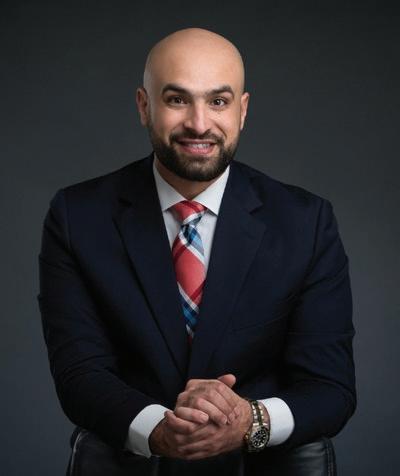

Mohamed Saieed has enjoyed a remarkable life thus far, a rollercoaster of a journey that has taken several sharp twists and turns.
What has remained an ever-present component in his make-up has been a passion for entrepreneurship.
Despite some significant setbacks during his storied career, Saieed has always bounced back, and has shown remarkable fortitude and resilience to be in the position he is today.
Today, he is the CEO of Potensia Systems, a system integrator, that designs and deploys industry-specific technologies to streamline business operations through a portfolio of solutions, managed services and consultancy.
However, to get a better understanding of Mohamed Saieed, you need to go back to the start.
This story begins in Egypt in the 1980s, and from a young
age, Saieed had a passion from technology, one that was inspired by his father, who recognised that computers represented the dawn of a new industrial revolution.
“My interest in technology came at a very young age, primarily because my father recognised that computers represented the future. I got my first computer when I was
7 years-old in 1989, and from that point on I was hooked. I developed a reputation within my family and in my community for being the ‘tech guy’ - and people regularly consulted me prior to purchasing a computer. I was obsessed with technology,” said Saieed.
Fast-forward to 1999, and the ambitious Saieed had reached the stage where he wanted to convert his passion into a career, confident in his ability to capitalise on the burgeoning opportunities that were emerging at the time of the .com bubble in the mid-tolate 90s.
“I organised a meeting with the Head of Telecommunications in Egypt back in 1999. I told them that I wanted to purchase a portion of the traffic on internet because quite frankly they didn’t know how to use it effectively. I wanted to buy a portion of traffic in order to distribute it effectively across 3 states within Egypt, and incredibly within a couple of months I had made my first million. I had made my first million before I was 21, so I wasn’t actually eligible to open a bank account, so I decided to start investing the money into different areas, mostly property,” said Saieed.
It was during that particular success that Saieed came to the conclusion that in addition to his passion for technology, he also had got the bug for free market capitalism and wanted to make money, and make it fast.

However, despite the incredible success he enjoyed initially, he was about to be
brought back down to earth with a bang.
“It had become very evident that by that stage in my career I had developed what they say in America as ‘entrepreneurial spirit' – and I started purchasing domain names at the time, which was very profitable at the
economic crash of 2008, the bubble had burst for Saieed and many of his contemporaries.
However, as the old adage goes, ‘when the going gets tough, the tough get going’ –and Saieed showed he could be resourceful in the face of extreme adversity.
time. I decided to move to Dubai in 2005, because it was booming and it really was the place to be. I established a company in Dubai, but I lost everything and was brought back to reality with a major bump. I didn’t understand the culture, I didn’t know that many people, and it was no surprise really that the business wasn’t a success,” said Saieed. His financial misfortune was not an isolated or uncommon incident at the time, because his business crashed around the same time of the global
“I had no money in my bank account, but I had a family and a daughter to support, so it was an extremely difficult time, and I didn’t know what to do. I discovered that I had a passion for photography, so I went to events, and I hustled hard. I had an understanding of the emerging technologies at the time, such as photoshop and that really helped me become relatively successful and allow to get back in the game,” said Saieed.
I wanted to buy a portion of traffic in order to distribute it effectively across 3 states within Egypt, and incredibly within a couple of months I had made my first million.”
Saieed enjoyed reasonable success from his photography business and other investments, but the big turning point in his life came when he established Potensia Systems in 2017.
“I analysed the market needs, and I could se there was a gap in the market for what we provide at Potensia Systems, and that’s why after I launched the company, I then started to narrow my focus on AI, because like my father all those years ago, I could see that AI was where the future was headed. We started as a systems integrator that was focused on security, we focused on both physical and cyber security, and we did an excellent job. But as I said at that time, internally we were really focusing our attention on AI. We then entered into an agreement with NVIDIA globally, which was just huge for us, because they are the backbone of AI,” said Saieed. The partnership with NVIDIA and the success of their day-to-day business ensured Potensia grew rapidly, but in another indication of Saieed’s unrelenting quench for innovation, he developed another AI platform during the COVID-19 pandemic.
“During COVID, I developed the first AI-platform for digital marketing that was specialised in food delivery. I collaborated with Talabat, Uber Eats and Deliveroo in a bid to generate all the data out there in order to be able to target audiences based on their individual preferences. I then sold this platform to one of the biggest delivery companies in the
world – and I used that money to really invest in Potensia Systems, which helped drive the continued success of the enterprise,” said Saieed.
The next evolution for Potensia Systems was the development of an AI-platform that was specifically designed for investors.
“It was essentially for investors that were looking for investment opportunities in the Middle East, with a particular focus on Dubai. Dubai has become the land of opportunity, it has no tax, a great lifestyle, and there is just so much potential here. However, when you don’t know the culture then you can take unnecessary risks, there is a risk to everything, but with the right guidance on your investment you can easily triple your investment. Our solution can help investors customise a profile for
markets your interested in, and what your expectations are and then we can create a customised portfolio for you.
In addition to this, there are also opportunities for you to become a licensed investor in Dubai by using our platform, so we provide an array of opportunities for investors that reside outside of the UAE,” said Saieed.
The dynamic CEO of Potensia Systems concluded a wonderful conversation by highlighting their unique partnership on high-performance compute with global ICT vendor Huawei, which he believes will help them scale the AI investment tool across the Middle East region.
“We’ve signed a deal with the Saudi government to roll out the same program there as we do in the UAE. We’ve partnered with Huawei on HPU (high-performance compute) that will help us to power this
themselves and help them better understand the unique intricacies of the marketplace here in the UAE,” said Saieed.
The majority of investment from overseas is typically directed into real estate, but as Saieed explains their scope is broad.
“For example, take the agriculture sector, we can generate decades of data from that industry to help you make a better-informed investment on the opportunities that exist. You can tell us the
application. The database we got from the UAE government from the last 20 years is just enormous, so you can imagine the compute power we need to manage all this data across our application. However, we’re confident that we can continue to scale and grow, and our partnerships with industry leaders like NVIDIA and Huawei only solidify our own growing reputation in AI and managed services in IT and technology,” concluded Saieed.
Our solution can help investors customise a profile for themselves and help them better understand the unique intricacies of the marketplace here in the UAE.”

Patrick Ramseyer, Vice President EMEA at LinkShadow, tells CNME Editor Mark Forker how their cyber mesh platform is helping businesses move away from a siloed approach to security – and how its intelligent NDR solution is empowering CISOs to make better decisions based on the criteria that is really important to them.
Patrick Ramseyer is an Irish-Swiss national who has enjoyed a stellar career in the cybersecurity industry.
He has spent most of his professional life in Switzerland, but he moved to the UAE in 2018, when he was appointed as the Managing Director of a well-known cybersecurity vendor.
In April of this year, he joined LinkShadow, where he has been tasked with the responsibility of driving their growth across the EMEA region.
In a candid discussion with CNME, Ramseyer was transparent on the issues facing CISOs in the current cybersecurity climate, and how the solutions within their product portfolio are equipping them with the tools they need to both better protect their assets and save money.
He kickstarted the conversation by highlighting the need for large enterprise to move away from a siloed approach to security.
“One of the major challenges that stakeholders and CISOs are encountered with is the fact that they have what would be described as a siloed approach. Essentially, that means they are building up their security operations centres around various teams for various products. For example, take a CISO with a team of 50 people working for him, he has a firewall team, endpoint detection and response team, but they are all working in separate little silos, and ultimately what that leads to is a lot of ‘noise’. When we say noise in security operations what we’re talking about is false positives, which is basically security professionals investigating incidents of no importance, and that leads to ‘alert fatigue’,” said Ramseyer.
As Ramseyer pointed out, the lack of talent and skills on a global scale has fostered an environment in which staffing shortages is the normal.
“If you work in an air traffic control tower you work for 35-minutes and then you stop


If you speak to any CISO he’s going to tell you that the biggest problem they face is staff and skill shortages.”
and take a 35-minute break because of the sheer pressure. However, security operations centres don’t work like that because they can’t afford to. They are on the go for 10, or 12 hours a day monitoring incidents and monitoring threats, and investigating other suspicious activities, so alert fatigue is a huge problem. If you speak to any CISO in today’s climate he’s going to tell you that the biggest problem, they face is staff and skill shortages.” said Ramseyer.
Ramseyer reinforced how the siloed approach to security had become archaic, and stressed the need for security systems to being working in correlation.
“If my end-point detection and response is reporting that I have a couple of suspicious files on my computer, what you need to be able to do is correlate that with the fact that my PC is also negotiating with a website on a blacklist – and my intrusion detection system is saying that from another IP range in Russia there is an attempt coming
through. So, essentially what you’ve got is the intrusion prevention system team seeing one thing, the intrusion detection team seeing another picture, the firewall team seeing something different, and the same applies to the end-point detection and response team, but crucially nobody is correlating this, it is all siloed. It’s only when they get together once a week and they say we had this, and we had that – it’s only then that the penny finally drops with them,” said Ramseyer.
Gartner have proposed cybersecurity mesh architecture as a solution to the problem of siloed security.
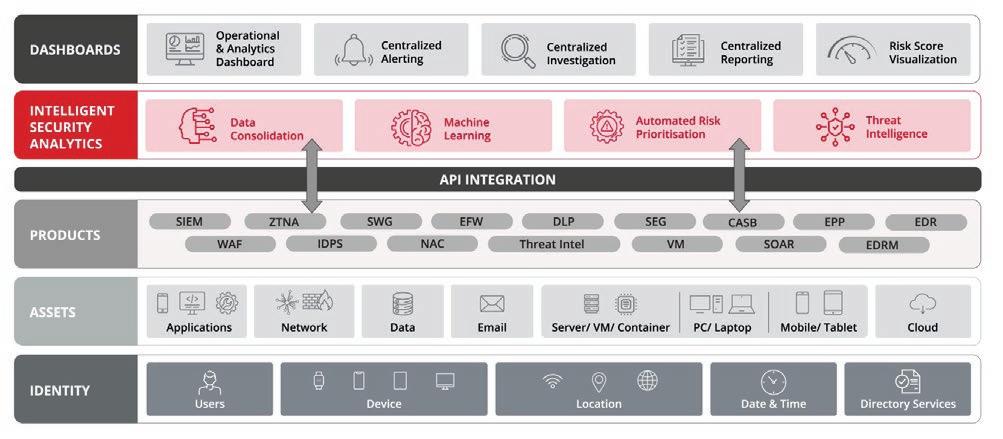
Ramseyer outlined that it is essentially ‘a new approach’ businesses need to take, and he explained the benefits of LinkShadow’s cyber mesh platform.
“We call LinkShadow, a cyber mesh platform, because it’s a new approach that companies are supposed to take. It’s all about taking a new approach to your security posture, and that’s what LinkShadow is all about. What you’re looking at with this new approach is instead of having multiple silos and multiple teams, you consolidate all of that into one package. It is based on the premise of middleware, which effectively eliminates all the things you don’t need to see from all the other systems, and highlights and gives you the most important information that you need. What we do is very similar to that, we’re talking to your EDR, IDS, and firewall teams, and we’re correlating and aggregating all this information, and that’s where our AI and Machine Learning comes in, because you
We call LinkShadow a cyber mesh platform, because it’s a new approach that companies should consider for their cybersecurity posture”
can’t do that manually, the only way to do it is by using adaptive AI. The other element is being able to correlate the automation of all the responses, and that’s all done using our AI engine,” said Ramseyer.
LinkShadow has customercentricity embedded into its core values as a company, and that has allowed them to understand the nuanced challenges facing CISOs.
In addition to this problems CISOs face in terms of SOC efficiencies and skills shortages, another consistent challenge they face is dwell time.
“There’s no doubt that dwell time is a huge challenge for CISOs. How long is a threat inside my network before I actually find it? These are the types of metrics that CISOs are looking at. When you talk about insider threat you need to consider that it could be deliberate, or it could be
accidental. You also have to monitor the lateral traffic, you have North and South traffic, which is in and out of your network, and then lateral is inside user to user, by monitoring that traffic you can also detect anomalies,” said Ramseyer.
However, according to Ramseyer the biggest question that underpins all of the above is how do businesses save money?
“A CISO will say to you that I need you to hand me a proposal that I can give to my CFO that demonstrates if we purchase this product then we’re going to save money. You can show the cost savings very, very quickly, and the primary reason for that is the fact we have one user interface. For example, if I take the siloed approach, then I’ll have 10 different types of interfaces, and 10 different panes of glass. Every vendor
will tell you that they have a single pane of glass, but it’s 10 altogether, it’s not a single pane of glass. You have to take all those 10 interfaces and funnel them into one. By doing that you have one platform that shows you where your threats are, how to respond to the threats – and ideally it will tell you where you are wasting money. In addition to this, if you want to investigate further, or if you need a specialist for forensics then you can go into your firewall logs,” said Ramseyer.
Ramseyer also highlighted the issue of ‘vendor lock-in’ that many CISOs and IT directors face.
“A lot of CISOs and IT directors will talk to you about vendor lock-in – which essentially means they are over reliant on one particular vendor. CISOs don’t like that because it takes the decision out of their hands, and maybe one vendor has a better end-point detection and response than the other, but because they are locked in, they can’t use it. They want autonomy and choice. The big advantage we have is the fact that we integrate with any vendor, it doesn’t matter if you are Microsoft, Sophos, or Kaspersky, we integrate with all of them via what is called bi-directional API. We’re not only receiving information from them, we’re also sending them activities in terms of response, so it’s a two-way communication between each of those systems, and we have already over 60 done with all the main vendors, and this is what cyber mesh is all about. It is a common integration between all these tools that
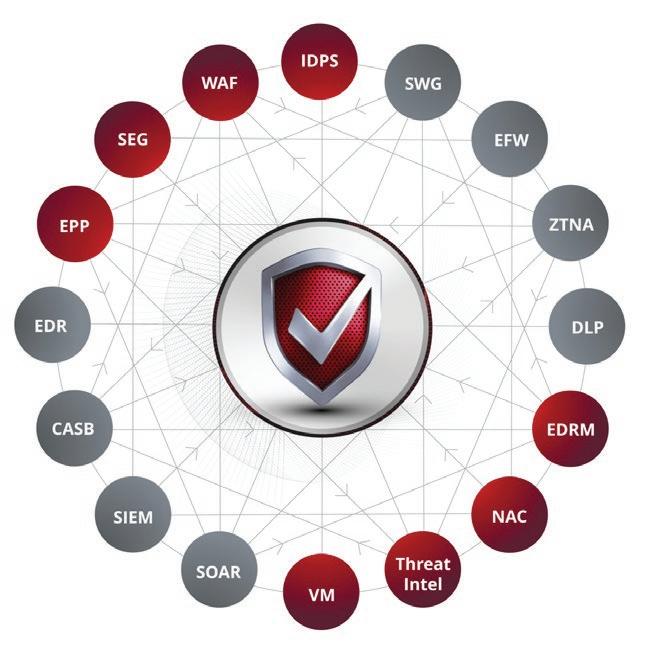
have a single platform, so that everyone can see what is going on in each one from the one pane of glass,” said Ramseyer.
LinkShadow has drawn widespread acclaim for their intelligent NDR solution.
According to Ramseyer, CISOs at large entities want to know what their risk exposure is, and LinkShadow’s intelligent NDR can provide them with that.
“Traditional NDR by definition is network detection and response, which essentially monitors the traffic on the network and looks for anomalies and threats. However, what intelligent NDR does is not only monitors the traffic, but it also correlates it all with the other security tools. CISOs want to know what their risk exposure
is? Large organisations are concerned about their risk exposure because it’s a measurable metric, so they can say every month that my risk exposure was 9 or 8, so they can see they are improving. It’s not really applicable here in the Middle East yet, but in Europe, if you get breached you have to account for everything that happened up until that breach. When you get investigated by the relevant bodies of data protection, they are going to ask to see everything you have in
place, and if you can document and demonstrate that you have been making an effort to reduce your cyber exposure over a period of time then the fines will be a lot less. These businesses want to see their risk exposure and we can give them that through our intelligent NDR,” said Ramseyer

Another key component within LinkShadow’s intelligent NDR offering is their block count ratio.
“We have what we call a block count ratio, and what that essentially means is how many blocks did my security tool do? How many times did it block a blacklisted IP address, how many times did the endpoint detection and response cut out malicious files. We can see by assessing each tool how effective they are. We can then give the CISO a lovely report where he sees these intrusion detection systems have only accounted for say .6% of their total blocks for a year, which is less than 1%, so does he really need that one, or does he really need a very expensive one? You could have a DLP system that cost you $10,000, and you can have a DLP system that can cost you $1million, but you might only need a $10,000 one if your DLP is not a major concern, but you need to be able to determine that, and again that’s where we come in. Ultimately, our intelligent NDR empowers CISOs to make the decisions based on the criteria that’s important to them, and the No.1 criteria that it is important to any CISO is money because security is a blackhole when it comes to money,” said Ramseyer.
Businesses want to see their risk exposure, and we can give them that through our intelligent NDR.”
CNME Editor Mark Forker secured an exclusive interview with Kevin Kline, Senior Staff Technical Marketing Manager at SolarWinds, in an effort to find out how their suite of solutions are empowering users to overcome database problems, the importance of effective cost management when migrating to the cloud – and the key fundamentals needed in data recovery.
Kevin Kline is a software industry veteran and has enjoyed a remarkable career, one thus far that has spanned 35 years.
In his earlier days he worked as an Oracle developer on projects with NASA, and has also worked with Amazon Web Services, Deloitte & Touche and Quest Software in what has been a storied journey to date.
For the last 11 years he has spent 10 of them at SolarWinds, and has been in his new position as Senior Staff Technical Marketing Manager at the company for the last 4 months.

We began the conversation by focusing on the tools and solutions being provided by SolarWinds to help enterprises determine whether the issue they are encountering is a database problem, or something else.
As Kline highlighted this is an old age problem that is still
prevalent in the industry, but he says new technologies have helped IT professionals move away from the ‘blame game’ culture that existed.
“I started my database administration career back in 1994, and back then we had robust monitoring systems. I
would typically get a call from an end-user, or a program manager to say that their database system is down, and that I needed to get in there and fix it. So, I would log-in and connect, and I could quickly see that there was no issue with connecting to the database. I would relay that back to the program manager and say everything is good here, it is answering my queries, but they would say, no that can’t be right, it’s definitely a database problem. What would then ensue would be a blame game until we discovered what the root of the issue was,” said Kline.
Kline said it was common place for his database team to be the first ones contacted when there was an issue, but he said that the nemesis in their organisation was the networking team.
“The problem would be a router that dropped
somewhere, and that person couldn’t connect to the server, but the server was still up and running. That was the scenario in the good old days, but it actually served as an inspiration for me to work with a tools company because I knew we could move away from the blame game culture that existed - and use empirical evidence that shows exactly where the problem is,” said Kline.
Kline said that when it came to resolving a particular issue the mantra adopted by SolarWinds was a good, better and best approach to overall monitoring.
“There are many companies that don’t have a large team, so in that instance they could use a couple of our products, the first of which is our new
SolarWinds Observability, which is an all-cloud product, or they might want to use one of our Server and Application Monitoring (SAM) product. Those two products give you full stack observability. For the majority of our customers that use those products database is not the main focus of their IT efforts, we all have databases, but it isn’t their primary focus,” said Kline.
Kline highlighted the products required for businesses with critical databases and for databases not performing well, or are consistently crashing.
“We offer our Database Observability (DBO) platform for SaaS vendors, and we have two products that are specific to personas. What we mean by that is over time people have always wondered is the database administrator going to be a permanent position, or is it going to go away at some point in the future. If you’re a highly skilled database administrator at a company that knows its systems are missioncritical, and we’re going to lose hundreds of thousands of dollars per-hour if our database is slow, or not responding. That is when you want to use SQL Sentry, it’s extremely deep and powerful and can alert you on things that nobody else in the whole field can, no competitors can get near it. We also have a product called DPA (Database

One of the biggest things that we see is customers are just unprepared for the transition to the cloud.”
Performance Advisor) and what this does is work across all the major relational databases and this is probably by license count our most popular database product,” said Kline.
Kline also pointed out how DPA focuses on an element that all the relational databases have called wait statistics.
“Wait statistics in Oracle, or SQL are all conceptually the same thing, which is what is waiting for you in your database? So, if we need to solve a problem on our database, you can go into DPA and you can see we are waiting on the SAN, something is going on with our SAN, we can see which queries are hitting the SAN - and then you can go a level deeper and troubleshoot that at the SAN level. It really removes again this culture of the blame game that existed so much in the past,” said Kline.
The demands of moving workloads to the cloud have been a big issue for many enterprises across the Middle East, but Kline said the problem is not isolated to the Middle East, and said it is a big challenge in the US too.

According to Kline the biggest issue for enterprises moving to the cloud is readiness.
“Last year, I wrote a book about migrating databases to Azure SQL called Professional Database Migration to the Azure SQL Cloud, so I consider myself pretty well-versed when it comes to this particular topic. I also spent a year at AWS, where my main job was to help customers migrate to the cloud. One of the biggest things that we see is customers are just
unprepared for the transition to the cloud. Essentially, what that means is they have spent years managing their databases on a yearly budget, which means they have to purchase new servers every couple of years. However, that has a very high and heavy cost because a large enterprise might spend $3m on new servers, but it’s a sort of ‘one and done’ transaction and it is quickly out of their minds. Once you decide to move to the cloud the bill doesn’t show up every three years, it shows up every month and you see what
your paying. Many managers have not readjusted, or spent time studying how is this going to be different in terms of billing and consumption,” said Kline.
Kline said that traditionally servers were bought for the peak load, but an interesting conversation with fellow database peers at one of the biggest floral companies in the United States, showed how cost-effective switching to the cloud can be.
“I met with some friends of mine who were database administrators for one of the largest floral companies in the countries. I spoke with them before they moved to the cloud in-person and they had spec’d out servers that were extremely expensive. I said it must be fun
The first essential component of a successful migration is to understand what your performance workload is like on-prem.”
working on a really big project like that, but to my surprise they said it was boring, because as a floral company they are only really busy the month before Mother’s Day, and the month before Valentine’s Day. Now with the cloud they spent a lot of time thinking about what their monthly costs will be, what they realised was that in the other 10 months of the year they spend 10% as much as that peak performance. They have had a very successful deployment because they identified that elasticity is a knob they could turn on, and add more servers and processing power when they need them,” said Kline.
Kline stressed that one of the key things SolarWinds does to help companies migrate was an increased focus and understanding of their performance workloads.
“The first essential component of a successful migration is to understand what your performance workload is like on-prem, so you can compare and see what it is like on the cloud. For example, say you are spending $8,000 per-month on database resources, by calling our support line we can project and predict based on their history how much they are going to spend if you go to Azure, or AWS, and that is very powerful,” said Kline.
Kline also highlighted that another issue facing companies was the traditional privileges and access given to the dev team.
“The companies that are guilty of deploying to the cloud without undergoing stringent analysis are used to their
developers having rights to high-level privileges to their in-house databases and servers, and they perpetuate that into the cloud. However, what they find is that you only pay for what you consume, but if you let the developers consume all kinds of things without that top-down supervision then that first bill could be surprisingly higher that you may expect. We help them see the overall consumption as well as predicting what the consumption will be and help them control costs in that way,” said Kline.
Kline advanced the conversation by highlighting the need to follow a strict set of fundamental principles when recovering lost data.
“What we have found is that some very large companies in the US and globally, I mean household names are simply not prepared. I have spoken to their dev teams and discovered that they don’t have a written and practiced disaster recovery plan. We always start with the fundamentals, which is do you have an SLA as a database administrator, or a dev team for your application. How long do you guarantee your users are going to have to wait before you recover,” said Kline.
Kline then outlined the importance of two other key metrics, which is RPO and RTO.
“RPO is recovery point objective and RTO is recovery time objective. One example from my past experience is we had an application in the 90s that earned us between $100-200K an hour, more than any of us made in a year by a long shot. The recovery time
objective was if the server crashes how much data are we willing to let die? In our case for that application, the owners of the application said we can let our users redo the last 15 minutes of work, so that told us that we had to have certain backups to make sure we never have less than 15 minutes of lost data. The recovery point objective is how long do they have to wait before the database is back up running and operating. Now that’s a challenge because if it’s an hour we could restore a database back up within an hour, but if they say it can’t be any longer than 15 minutes then that’s when you have to move from disaster recovery to high availability,” said Kline.
Kline concluded a wonderfully candid discussion by giving his main tip to companies that want to protect their key assets.
“I always recommend and constantly preach about this at conferences all over the world. If you have systems that are that important to the business, then you need to drill, drill and drill. You need to pretend that a server has gone down. How long does it take us to recover all of that data so our end-users are operational once again? I’ve had people call me to say our servers have gone down, and so have our secondary servers, and I just tell them I wish you had drilled in order to be prepared for this. It’s something that needs to change, it is imperative for your business that you drill, so when that inevitable day comes you know exactly what to do to get back in the game,” said Kline.






Christos Tulumba, Chief Information Security Officer, at Veritas Technologies, has penned a comprehensive op-ed designed to provide CISO’s with a guide to balancing predictive text technology with security and privacy.

Artificial Intelligence (AI) has taken the world by storm, and Generative Pretrained Transformers (GPT) models are creating waves, transforming everything from the way we communicate, work, and even the way we think.
In GPT models, text prediction analyses the context of a given input and generates a sequence of words or text that is likely to follow based on patterns learned from vast amounts of training data.
It uses a neural network to predict the next word or phrase, making its predictions based on the most probable continuation of the input text.
Its power lies in its ability to predict - almost like the way each of us might predict what a friend might say next in a conversation - taking inputs and processing them through a well-structured model to generate outputs that resonate with human understanding.
In the business world, organisations that continue to explore and harness the potential of these technologies are poised to revolutionise their industries and remain
agile in an ever-evolving global marketplace.
However, amidst the rising popularity and undeniable advantages, organisations must ensure that the agility and efficiency it brings don’t overshadow the security and privacy.
As the Chief Information Security Officer (CISO) at Veritas Technologies, I have keenly observed the remarkable evolution of AI. Before diving into the technology, it’s imperative to educate our teams and stakeholders on predictive text and its risks and rewards.
CISOs can implement strategies like data sanitisation, access controls, and continuous monitoring to minimise potential security risks.”
As information security leaders, we need to ensure that everyone understands the perception vs. reality of AI's security and privacy concerns.

Perception 1: GPT may compromise data privacy due to its training on sensitive information.
Reality: GPT models are trained on large datasets, including publicly available text from the internet. However, the models themselves do not retain specific details of the training data. The responsibility lies in the hands of organisations and researchers to ensure appropriate data anonymisation
and privacy protection measures are in place during the training and deployment of GPT models. Perception 2: GPT poses significant security risks and can be easily exploited by attackers.
Reality: While it is true that GPT-based models can be misused for malicious purposes, such as generating convincing phishing emails or automated cyberattacks, the risks can be mitigated with proper security measures and controls. CISOs can implement strategies like data sanitisation, access controls, and continuous monitoring to minimise potential security risks.
Perception 3: Predictive text models store and retain user data indefinitely.
Reality: Predictive text models typically do not retain specific user data beyond the immediate context of generating responses. The focus is on the model's architecture and parameters rather than preserving individual user information. However, it is crucial for CISOs to assess and validate the data retention and deletion policies of the specific models and platforms being utilised to ensure compliance with privacy regulations and best practices.
Perception 4: Predictive text models can compromise sensitive or confidential information.
Reality: Predictive text models can generate text based on patterns and examples in the training data. If the training data contains sensitive or confidential information, there is a risk that the model could generate outputs that inadvertently disclose or hint at such information. CISOs must carefully consider the nature of the training data and implement appropriate data anonymisation techniques to minimise the exposure of sensitive information.
Perception 5: Predictive text modelsareapotentialtarget for data exfiltration.
Reality: The models themselves typically do not store or retain sensitive data. However, CISOs should still be mindful of potential vulnerabilities in the infrastructure supporting the models, such as the storage systems or APIs used for inference. Adequate security controls, such as encryption, network segregation, and intrusion detection, should be in place to protect against data exfiltration attempts targeting the underlying infrastructure.
As we navigate the complex waters of AI and machine learning, it's critical to understand how we balance the use of generative AI with security and privacy, and this requires a proactive approach from CISOs. Here are several strategies to achieve this delicate equilibrium:
1. Evaluate data privacy and protection and implement guidelines: CISOs should carefully assess the data used to train the model and ensure compliance with relevant industry regulations and pertinent company policies. It is crucial to anonymise or pseudonymise sensitive information and apply stringent access controls to protect user data from unauthorised access or misuse. It’s also important to work with legal and HR teams to establish compliance guidelines for the use of predictive text technology.
2. Secure model training and deployment: Securing the infrastructure used for training and deploying predictive text models is critical. Implement robust security controls, including encryption, secure protocols, and access management, to safeguard the underlying systems and prevent unauthorised modifications or tampering with the models. Implementing a Secure Development Lifecycle (SDL) for predictive text projects is key.
3. Strengthen user awareness and gain consent: Educate users about the implications and capabilities of predictive text technology. Clearly communicate the purposes of data collection and usage, and potential risks involved, empowering users to make informed decisions about opting in or out of predictive text features.
4. Collaborate with vendors and researchers: Engage in partnerships with technology vendors and researchers to stay updated on the latest advancements, security patches, and best practices related to predictive text technology. Active collaboration helps address emerging security and privacy challenges more effectively.
5. Develop incident response and continuous monitoring muscle: Build an incident response plan specific to predictive text technology. Monitor system logs, user feedback, and anomaly detection mechanisms to promptly identify any potential security incidents or privacy breaches. Establish processes to mitigate and respond to such incidents, ensuring minimal impact on users and data. While predictive text technology holds great promise, we must deploy it responsibly as custodians of data security and privacy in our organisations. Ensuring compliance with international data privacy laws is paramount. Considered use of emerging technologies like AI has the power to change lives – it can transform consumer experiences, help governments make more informed decisions, accelerate scientific discovery, improve the delivery of more personalised healthcare services, and so much more.
As CISOs, our job is to remain vigilant and steer our organisations through the waves of innovation with security at the helm.
CNME Editor Mark Forker attended ‘Next 23’ in San Francisco, as Google Cloud ushered in a new cloud era, one that will be driven by advancements made in generative AI.
Thousands of customers, partners, analysts, and international press descended on The Moscone Centre in San Francisco, for Next 23, the first in-person event held by Google Cloud since 2019.
However, back in 2019, Thomas Kurian had recently just been appointed as the CEO of Google Cloud, but as Sundar Pichai, CEO of Google and Alphabet said when addressing attendees during the keynote, he was excited about his vision for Google Cloud four years ago.
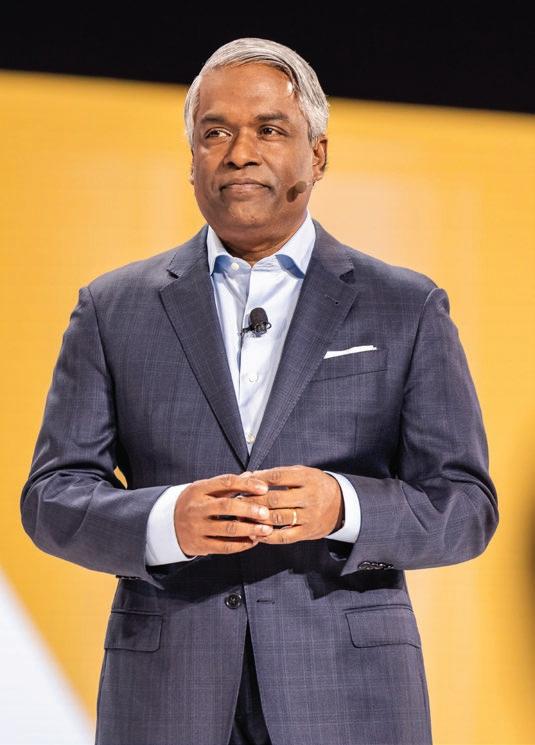
"The last time we were here in 2019, Thomas presented his vision for Google Cloud, and I was so excited about his plans, and over the last four years, Thomas and his team have built Google Cloud into one of the top enterprise companies in the entire world," said Pichai.
Before handing the floor over to the Google Cloud CEO, Pichai highlighted the impact some of the major announcements such
as Vertex AI and Duet SI are going to have for customers.
"I believe that we are only really starting to scratch the surface since when we made Vertex AI available. Our objective is to equip our customers with access to the right model for them to create and innovate. In terms of Duet AI, we already have 1 million users, and today, we are delighted to announce the general availability of Duet AI in Google Workspace," said Pichai.
Pichai concluded his address by declaring that the company will continue to be bold and responsible, and said they are imparting on a 'golden age' of innovation.
Thomas Kurian kicked off his keynote by saying that the shift to AI will represent one of the most profound changes in our lifetime.
He reiterated Google's mission, which is to help every person to be able to use AI.
"Our generative AI products are delivering real results in
every single discipline. We want to help every person use AI, and we want to bring together the whole AI ecosystem so they can succeed in adopting AI," said Kurian.
Kurian outlined how customers were increasingly drawn to their world-class infrastructure, revealing that Yahoo is migrating 500 million mailboxes and 550PB of data to Google Cloud as part of their efforts to improve their e-commerce experience, whilst Mahindra Rise has utilised the capabilities of Google Cloud to help them sell over 100,000 SUVs.
Kurian highlighted the impact some of their new products are having in terms of delivering productivity and operational gains for their customers.
"Today, we are launching a new product called GKE Enterprise, which has been designed to enable multicluster horizontal scaling. Customers have already seen an increase of 45% in productivity gains, whilst reducing software deployment times by over 70%," said Kurian.
In addition to this, he also spoke of his excitement at their partnership with NVIDIA.
"We're also announcing the availability of our A3 VMs, based on NVIDIA's latest 8100 accelerator GPUs. A3 offers 3 times faster training and 10 times greater networking than the A2, which is ideal for managing incredibly demanding AI workloads.
We are also introducing the titanium system, a nextgeneration tiered offload
architecture that underpins the performance advances we have made in our AI infrastructure," said Kurian.
Kurian added that it was the company's ambition to help companies streamline their productivity and operational efficiency with generative AI.
"We are in an entirely new era of cloud, fueled by generative AI. Our focus is on putting gen AI tools into the hands of everyone across the organization—from IT, to
operations, to security, to the board room. As the industry's most open cloud, our goal is to help companies use AI and other cloud technologies to streamline their operations, increase productivity, and create entirely new lines of business," said Kurian.
So, what exactly did Google Cloud announce at Next?

Below is a comprehensive breakdown on the new partnerships forged, new infrastructure and tools rolled out and the expansion made on Vertex and Duet AI by Google Cloud.
Organizations across industries and around the world are choosing Google Cloud to digitally transform, and this year they've shared stories
As the industry's most open cloud, our goal is to help companies use AI and other cloud technologies to streamline their operations, increase productivity, and create entirely new lines of business."
from Culture Amp, Deutsche Borse, eDreams ODIGEO, Government of Singapore, HSBC, IHOP, IPG Mediabrands, John Lewis Partnership, The Knot Worldwide, Macquarie Bank, Mayo Clinic, Priceline, Shopify, U.S. Steel, and Wendy's.
In addition to this, Google Cloud also announced new or expanded relationships with The Estée Lauder Companies, FOX Sports, GE Appliances, General Motors, HCA Healthcare, and more.
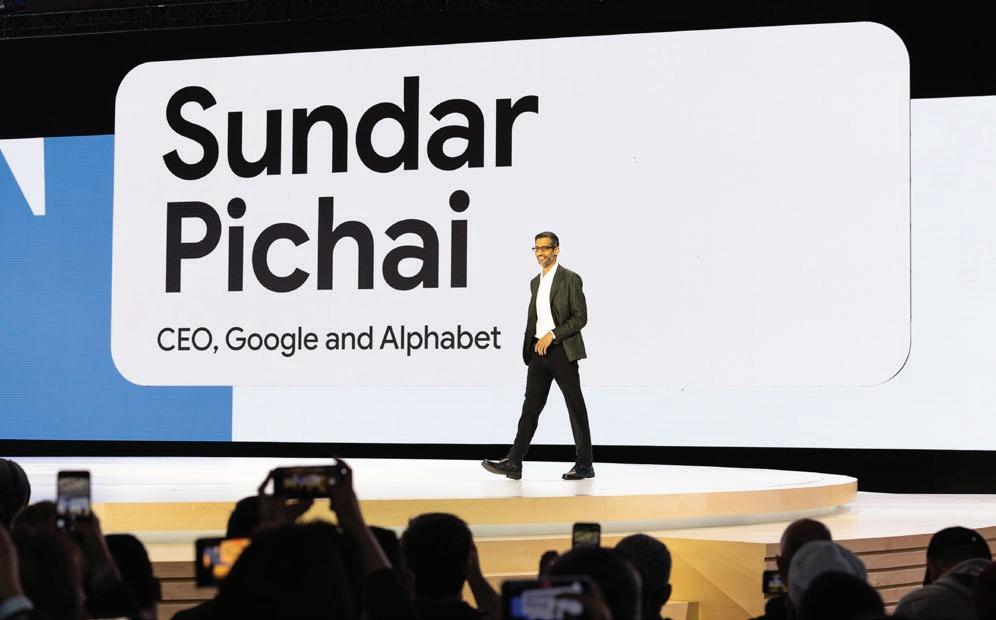
Innovative gen AI startups, like Replit, Typeface, Jasper, and more, are increasingly choosing to build on Google Cloud.
In fact, today more than half of all funded gen AI startups – including companies like Contextual, CoRover, Elemental Cognition, Fiddler, and Quora are Google Cloud customers.
This includes 70% of gen AI unicorns, like AI21, Anthropic, Cohere, Runway, and others.
The advanced capabilities and broad applications that make gen AI so revolutionary demand the most sophisticated and capable infrastructure.
Google Cloud has key infrastructure advancements to help customers, including:
• Cloud TPUv5e: This is Google Cloud's most cost-efficient, versatile, and scalable purpose-built AI accelerator to date. Now, customers can use a single Cloud TPU platform to run both large-scale AI training and inferencing.
• A3 VMs with NVIDIA H100 GPU: A3 VMs powered by NVIDIA's H100 GPU will
be generally available next month, enabling organizations to achieve three times better training performance over prior generation A2.
• GKE Enterprise: This enables multi-cluster horizontal scaling required for the most demanding, mission-critical AI/ML workloads.
Cross-Cloud Network: This is a global networking platform that helps customers connect and secure applications across clouds. It is open, workloadoptimized, and offers MLpowered security to deliver zero trust.
• Google Distributed Cloud (GDC): GDC is designed to meet the unique demands of organizations that want to
We want to help every person use AI, and we want to bring together the whole AI ecosystem so they can succeed in adopting AI.”
run workloads at the edge or in their data centers. The GDC portfolio will bring AI to the edge, with Vertex AI integrations and a new managed offering of AlloyDB Omni on GDC Hosted.
On top of Google Cloud's renowned world-class infrastructure, the company is delivering a comprehensive AI platform—Vertex AI—that enables customers to build, deploy, and scale machine learning models.
Customers have access to more than 100 foundation models, including third-party and popular open-source versions, as well as industryspecific models like Sec-PaLM 2 for cybersecurity and Med-PaLM 2 for healthcare and life sciences. New innovations include: Vertex AI Search and Conversation: Now generally available, the tools enable organizations to create Search and Chat applications using their data in just minutes, with minimal coding and enterprise-grade management and security built in.
• PaLM 2, Imagen and Codey Upgrades: This includes updating PaLM 2 to 32k context windows so enterprises can easily process longer form documents like research papers and books.
• Tools for tuning: For PaLM 2 and Codey, Google Cloud is making adapter tuning generally available, and introducing a new method for Imagen, called Style Tuning, so enterprises can create
images aligned to brand guidelines with a small amount of reference images.
• New models: Google Cloud is announcing availability of Llama 2 and Code Llama from Meta, and Technology Innovative Institute's Falcon LLM, a popular open-source model, as well as preannouncing Claude 2 from Anthropic. Google Cloud will be the only cloud provider offering both adapter tuning and RLHF for Llama 2.
• Vertex AI extensions: Developers can access, build, and manage extensions that deliver real-time information, incorporate company data, and take action on the user's behalf.
Digital Watermarking on Vertex AI: Powered by Google DeepMind SynthID, this is a state-of-the art technology that embeds the watermark directly into the image of pixels, making it invisible to the human eye and difficult to tamper with.
Colab Enterprise: This managed service combines the ease-of-use of Google's Colab notebooks with enterprise-level security and compliance capabilities, helping data scientists accelerate AI workflows.
From the beginning, Google Cloud designed Vertex AI to give users full control and segregation of their data, code and IP. User prompts and data, as well as user inputs at inference time, are not used to improve our models and are not accessible to other customers.
Google Cloud unveiled Duet AI at I/O in May, introducing powerful new features across Workspace and showcasing developer features such as code and chat assistance in Google Cloud.
At 'Next 23, Google Cloud is making Duet AI in Google Workspace generally available, while expanding the preview capabilities of Duet AI in Google Cloud, with general availability coming later this year.
Workspace is the world's most popular productivity tool, with more than 3 billion users and more than 10 million paying customers who rely on it every day to get things done.
With the introduction of Duet AI just a few months ago, Workspace delivered a number of features to make users more productive, like helping write and refine content in Gmail and Google Docs, create original images in Google Slides, turn ideas into action and data into insights with Google Sheets, foster more meaningful connections in Google Meet, and more. New enhancements announced today include:
• Duet AI in Google Meet: Duet AI will take notes during video calls, send meeting summaries, and even automatically translate captions in 18 languages. Duet AI in Meet also today unveiled studio look, studio lighting, and studio sound.
• Duet AI in Google Chat: Users can chat directly with Duet AI to ask questions about their content, get a summary of documents shared in a space, and catch up on missed conversations.
Veronica Martin spoke to Waleed Alawadi, Head of Digital Transformation Solutions at GCG Enterprise Solutions about the unique capabilities and functionalities of the G-Sign, the inspiration behind its concept - and what makes G-sign different from other digital signatures.

Could you provide our readers with an overview of the current GCG portfolio in the new fast-paced digital economy we live in?
GCG has more than 40 years’ experience in the market, specifically in the printing industry and digital solutions.
Based on the history of GCG, we have tried to build more solutions, which can cover the market needs.
Recently we have also developed different areas of solutions in terms of digital transformation solutions, AV and some of the printing solutions like managed print services.
Can you provide our readers with more information on the unique capabilities and functionalities of the G-Sign, GCG’s new proprietary Digital Signature Solution Platform?
G-Sign is a digital signature solution, which is built based on the customer requirements or market needs.
The idea of this application started when the pandemic happened and there was a
requirement for customers to have a digital signature process.
The UAE pass or the digital identity provided from the government, is giving the digital signature option to all individual users in the UAE.
The idea was to build a middle application, which can communicate with the digital signature and convert this individual signature process, that any person can sign it to meet the business process of the business.
This means we will match it with the business requirement to build some of the workflow and enhance the efficiency of the people to track and sign the process.
Recently we started building also multiple features which can be added to these applications to meet the market needs.
What was the inspiration behind the G-Sign concept that led to its development, and what problem does it solve for the businesses that adopt the solution into their day-to-day operations?
G-Sign is not built to compete with any enterprise solutions
The application has been built based on the market needs, so its unique features are based on our experience of this industry.”
in the market. The application is built based on the market needs.
The UAE Pass is the domain of this application that any users can sign the document and verify it from the government entity. The idea of this application has evolved a bit to match with the businesses.
We have started adding some features to this application according to business requirements. We have added some workflow engine and tracking of the documents.
Any industry, anyone in the UAE, can use it as an individual or as a business use. G-Sign is the first UAE digital signature solutions built based on the market needs.
There are quite a number of digital signatures on the marketplace, so what is it that ultimately differentiates G-Sign from other digital signatures?
The application has been built based on the market needs, so its unique features are based on our experience of this industry. We have also added some integration capabilities to enhance the business process of our day-to-day business. We are not competing with any enterprise solutions in the market as each customer when using the G-sign will feel it’s meeting their requirements.
We have built our application within the UAE and you can install it in your on-prem and utilize it daily.
We are also protecting the confidentiality of the documents as you can have the document signed from the government verified and at the same time you can save it in your servers internally.
What are the industry verticals that you are targeting with this solution, who are the type of customers that will typically look for this type of solution?
Any industry running a business has a document that needs to be signed daily, so there is no specific sector we are focusing on. For any type of business which is required to sign a document or a contract internally or externally, our solutions can fit to their requirements.
We have different types of customers, such as the government, lawyer offices and small enterprises.
We are offering solutions in different areas that can match with the small to medium business. The pricing structure we have built has a very reasonable price.
In terms of functionality, we have focused on the user interface, which is easy to use, comprehensive workflow engine capabilities and security, as they are the most important parts in the system. All of this means G-sign can be used in any industry.

The UAE Pass is the domain of this application that any users can sign the document and verify it from the government entity.”
Can you tell us about Bosch’s perspective on the role of hydrogen in the global energy landscape and its potential to address sustainability challenges? We see hydrogen as one of the energy carriers of the future. We need a storage system because we cannot do everything out of direct regenerative energy. Everything will be electrified in the future, but we will not be able to cover it always directly from solar and wind. Sometimes it’s winter, sometimes the wind is not blowing, and the sun is not shining. Then, we need some kind of storage in between. Hydrogen is the perfect solution for that. That’s why we have invested in hydrogen. If we want to get rid of co2, we have to go away from crude oil. Hydrogen is the best molecule in the chemical system that we can use for the storage of energy.
Bosch has been actively involved in partnerships and collaborations related to
hydrogen. Could you highlight some key partnerships and collaborations that Bosch has engaged in to promote the development and adoption of hydrogen technologies?
On the usage side of the hydrogen value chain, let us first have a look at the stationary fuel cell systems. There, our partner for the
development of the fuel cell and stack technology is Ceres in the United Kingdom. We have a good cooperation for many years now.
Another partner is PowerCell, a Swedish company. With them, we have developed the first generation of our fuel cell stack for mobile applications. It’s a startup company that has developed that kind of technology for years. Our part now is to provide the industrialization technology and the mass production competence. So therefore, it’s also a very good fit.

The UAE is hosting COP28 this year, with a strong focus on sustainability. How do you see the UAE’s commitment to sustainability impacting the adoption and development of hydrogen technologies in the region?
If we look at hydrogen, the world is separated in several regions which act differently at the moment. We see China having a clear strategy towards hydrogen in mobility. Therefore, there are subsidies, hydrogen hubs, and we see a lot of interest in truck manufacturers towards hydrogen as a solution for their mobility of the future. In the US, the Inflation Reduction Act (IRA) is a subsidy program that boosts the introduction of these kind of sustainable technologies towards the markets. Hydrogen will be getting much cheaper in the future and this will boost the industry.
In Japan, there’s also a clear trend from governmental side towards hydrogen. They have
a partnership with Australia building ships to transport green hydrogen from Australia to Japan. As a global company, we act individually on each market and adapt to the local circumstances.
The UAE has the great opportunity having sun and wind nearly every day. From that point of view, probably we don’t need subsidies there as well. There are a lot of financially sound companies that can invest into these new technologies. Our aim is to find partners to bring up an ecosystem for hydrogen.
Safety is a critical aspect when it comes to handling hydrogen. Could you discuss Bosch’s approach to ensuring the safety of hydrogen technologies and infrastructure?

Safety is a must in all technical systems and this also applies for hydrogen systems. We have solutions for all safety relevant functions, using special kind of sensors and technologies to keep everything under control. No one has to be afraid about a hydrogen vehicle. You can see
this already today on the road. There are vehicles all around the world and nothing has happened so far.
The cost of hydrogen production and its competitiveness with other energy sources are important factors for its widespread adoption. How is Bosch working towards reducing the cost of hydrogen technologies and making them more economically viable? Every new technology starts with a higher price level than existing technologies. Step by step, by developing new features and also new functions, we bring costs down. We have shown this in conventional injection equipment and other powertrain systems. We can reduce costs, for example, also by reducing the amount of precious metals in the stack or components which you need for such a system. In addition, we
have to overcome the starting point. With higher volumes, we can bring costs down with our industrialization know-how, and automation.
Then, we can reach the tipping point where a hydrogen fuel cell truck can be cheaper than a diesel truck with regards to total cost of ownership. Certainly, hydrogen itself as a fuel then must also get cheaper. Today it’s more than 9 euro per kilogram. In the future, it may go down to three to four euro.
Looking ahead, what are Bosch’s future plans and strategies in the field of hydrogen and what milestones do you hope to achieve in the coming years?
First of all, we now can celebrate the market launch of our fuel-cell power module. Next, we want to scale, but that will need some time and depends on market demand. It’s like the chicken and egg theory. If hydrogen stays at nine euro per kilogram, no one will buy a hydrogen truck. If no one buys a hydrogen truck, the hydrogen will not get cheaper. But we see that several countries plan to invest into hydrogen production to bring the costs down.
With lower costs for hydrogen and the technology, the tipping point will come between 2030 and 2035. This will also be supported by new legislation. In Europe, from 2035 and 2040 onwards, the CO2 footprint of trucks must be reduced. In the logistics area, there’s legislation as well. This will also be a push towards new technologies. We do expect large numbers in the next decade.
We see hydrogen as one of the energy carriers of the future.”
Sankalp Sharma, Co-Founder and CEO of Rayqube Future Tech, believes the MICE (Meetings, Incentives, Conferences and Exhibitions) industry needs to invest more in the Metaverse in order to reimagine and reinvent the way events are held in the new digital economy.

The MICE (Meetings, Incentives, Conferences, and Exhibitions) industry is one of the key sectors that drives the global economy.
It is an industry that has witnessed rapid transformation over the last few years, with the advent of new technologies like artificial intelligence (AI), machine learning (ML), augmented reality (AR), virtual reality (VR), mixed reality (MR), and extended reality (XR).
The MICE industry has seen a rapid transformation over the last few years, with the emergence of AI and other advanced technologies, with businesses moving to virtual platforms to continue operating.
The metaverse is one such platform that has seen significant growth in recent years, with more businesses and organizations adopting this technology.
As more and more businesses are adopting the metaverse, the MICE industry
is also starting to take notice of its potential.
AI is one of the key technologies that is driving the evolution of the MICE industry by venturing into the metaverse.
According to a report by Gartner , by 2023, AIpowered virtual assistants will be involved in 25% of all customer service interactions, including those in the metaverse.
Real examples from the MICE industry adopting metaverse can be seen in the form of virtual conferences, exhibitions, and trade shows.
With the COVID-19 pandemic, the industry was forced to move online, and the metaverse proved to be an ideal platform for virtual events.
For example, the Dubai World Trade Centre launched the GITEX Technology Week, in December 2020. The event saw over 1,200 exhibitors and 7,000 attendees from 140 countries .
Another worth noting example was the Game Developers Conference (GDC) 2021 - one of the biggest virtual conferences of the year.
It was held in a virtual environment, providing attendees with an immersive experience. The conference featured virtual booths, product demos, and keynote speeches, all powered by AI.
The CES 2021, one of the largest tech shows in the world, went virtual - using AI to create a digital experience for attendees.
The virtual event featured an AI-powered chatbot that helped attendees navigate the platform, providing real-time support.
The Abu Dhabi International Book Fair 2021, which usually takes place in person, moved to a virtual platform.

The event was held entirely in the virtual environment, providing a unique and immersive experience for attendees.
It is interesting to look at initiatives like the Dubai Future Foundation launching the "Virtual Future Cities" initiative, which aims to create a virtual platform for smart cities.
The platform will use AI and other advanced technologies to simulate real-life scenarios, providing a testing ground for new technologies.
The benefits of venturing into the metaverse are many for the MICE industry. Virtual (and more importantly, hybrid) events reach to a much wider audience, as attendees can participate from anywhere in the world.
In the immediate future, we will see more customized and personalized virtual events that will mimic physical events, providing a unique experience for attendees.
Further, AI-powered virtual
holographic assistants can handle attendee queries and provide real-time support, reducing the need for human intervention.
We will see the metaverse becoming more mainstream, with more businesses and organizations adopting this technology.
According to a report by Grand View Research , adoption of metaverse technology is expected to grow at a rapid pace in the coming years, with the market for virtual events expected to reach $774 billion by 2030.

The market landscape for the MICE industry in the Middle
East, especially in UAE and KSA, is promising with an estimated annual growth rate of 5.4% , according to a report by the Global Business Travel Association (GBTA).
The adoption of AI and the metaverse in the MICE industry is a game-changer. There is no doubt, that the MICE industry is transforming at a never-before pace, and the adoption of AI and the metaverse is driving this transformation.
AI is one of the key technologies that is driving the evolution of the MICE industry by venturing into the metaverse.”
18TH OCTOBER 2023
HABTOOR PALACE DUBAI, LXR HOTELS & RESORT
The CXO Summit is a forum during the week of GITEX GLOBAL ‘23 that has been designed to network, share, learn, and build the future that will help organizations navigate and overcome the complexities that exist in our ever-evolving digital economy.

Together, we can simplify the path to digital success. Your journey is our journey.




































































































